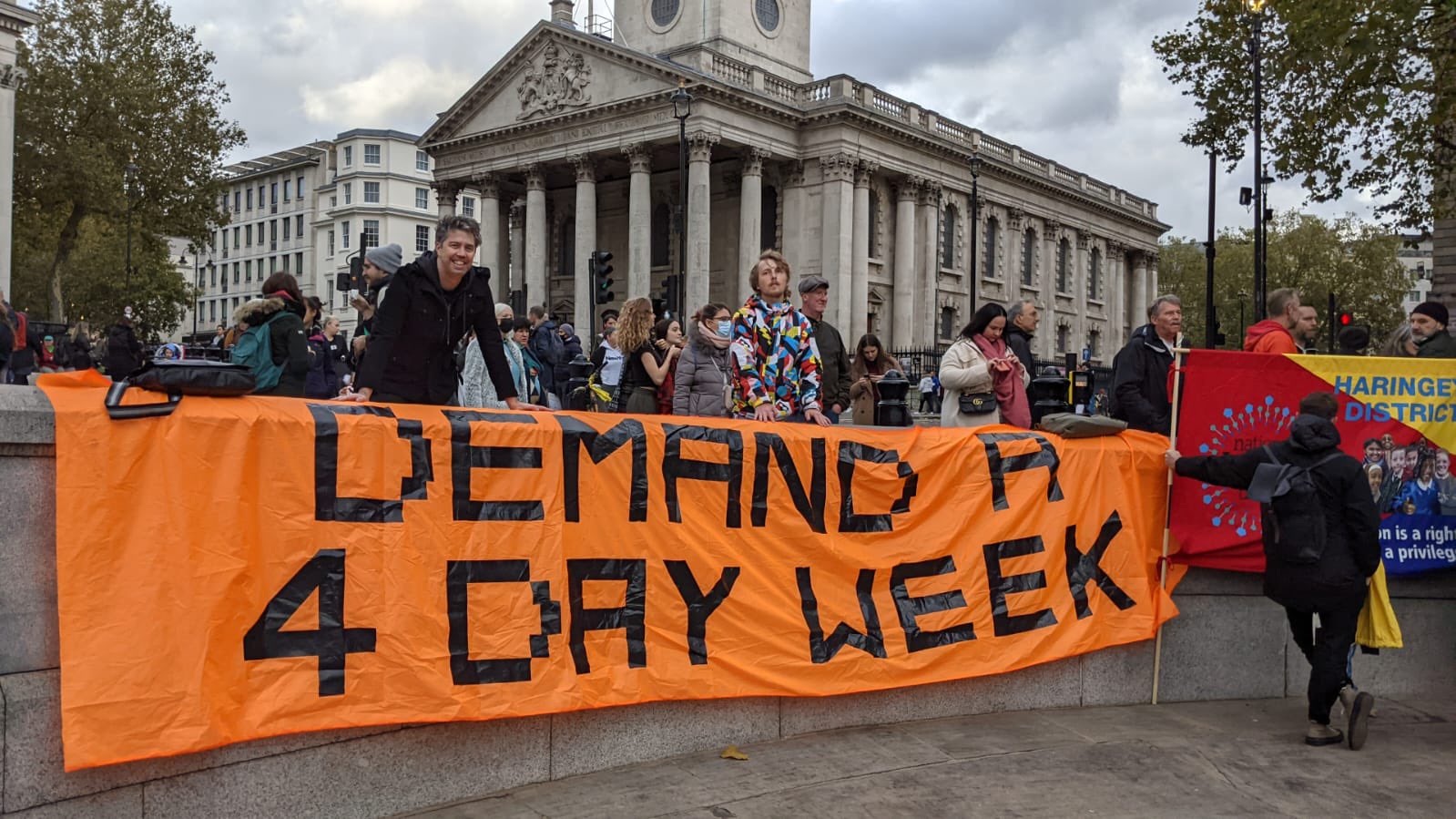The idea is gaining increasing support in the business community, too. Some 12% of UK companies plan to adopt a four-day working week in 2024. Last month, more than 40 business leaders wrote to party leaders to call for legislation that supports the transition to a four-day, 32 hour working week with no loss of pay.
The letter urges all the main political parties to “consider the transformative benefits” which they say they have “seen first-hand”.
What is a four-day working week and do we need it?
British workers are some of the most burnt out in Europe. More than 90% of adults in the UK have experienced “high or extreme levels of pressure or stress at some point in the past year”, Mental Health UK reported at the start of 2024.
The four-day week could counter this. Crucially, there is no loss of pay, despite employed hours going down from 40 hours to 32.
A 2022 pilot of the policy yielded positive results. In 2022, 61 companies – totalling 2,900 employees – trialled the model. 92% made it permanent.
Companies participating in the upcoming trial are hoping for similar outcomes.
Advertising helps fund Big Issue’s mission to end poverty
“We employ around 400 colleagues,” said Unji Mathur, executive director of people, change and technology at Bron Afon, a Welsh housing social enterprise that is participating in the autumn trial.
“We have always supported our colleagues to work flexibly, as we understand how important work-life balance is. Since the Covid pandemic, many of our teams work in a hybrid way – between home and the office, and most of our frontline teams work in the office, in the community and from home.
“Ultimately we want to provide a great place to work that attracts and retains talent by enabling people to do a great job, wherever and whenever they are working.”
The organisation aims to “maintain or improve” performance throughout the trial, Mathur added.
Is the new Labour government in favour of a four-day week?
The recently deposed Conservative government was actively hostile towards the concept.
When South Cambridgeshire District Council piloted it, then-local government minister Lee Rowley advised them to “end your experiment immediately”. Rishi Sunak said that the council’s constituents “deserved better”.
Advertising helps fund Big Issue’s mission to end poverty
Labour’s 2019 manifesto included a commitment to a four-day working week, a pledge that was removed from the party’s 2024 policy document. But the new government has committed to “strengthening worker’s rights”, and several key cabinet ministers have previously expressed support for the idea.
“If you can deliver within a four-day working week, then why not?” now-deputy PM Angela Rayner said at an event last year. “I think people will cotton onto the fact that it’s really good if it works for their sector and boosts productivity.”
Change might be coming. More recently, campaigners had called for a new bank holiday if England had been victorious in the Euros.
“If the England men’s team win a major tournament for the first time since 1966, workers definitely deserve a day off on Monday to celebrate,” said Ryle before the game. “In burnout Britain, we love our bank holidays. If we beat Spain, the government should make Monday a bank holiday so we can all celebrate together what would be an historic victory.”
England lost the final to Spain, 2-1.
Do you have a story to tell or opinions to share about this? Get in touch and tell us more. Big Issue exists to give homeless and marginalised people the opportunity to earn an income. To support our work buy a copy of the magazine or get the app from the App Store or Google Play.
Advertising helps fund Big Issue’s mission to end poverty









